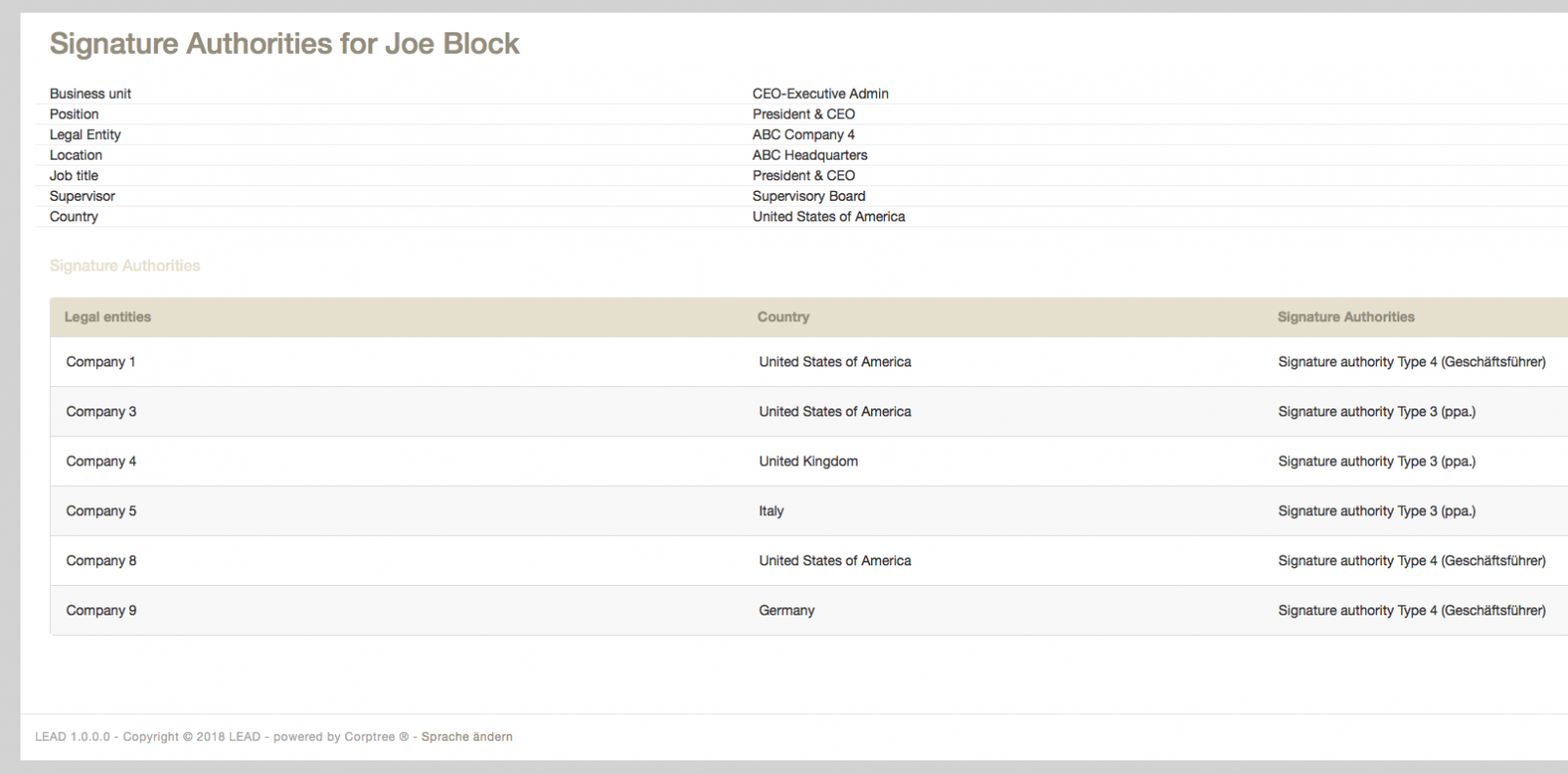Safe Signature Authority: Who can sign what?
A signature authority regulates the representation of the own enterprise towards third parties as well as the internal correspondence. A signature commits the own company to legally enforceable actions. Examples are: orders, order changes, purchase and sales contracts, employment contracts, offers, delivery and service contracts, banking transactions, etc.
Our software 'LEAD' offers you the following:
1. Documentation: All signature authorizations per person and company are available in a central register (single source of truth) and always up-to-date.
2. Audit: Any changes to the signature authority will be recorded in an audit report. Thus, historical data is always available.
3. Report: As an overview (company group or individual companies) and as a download you will receive all the authorized signatories in one document.
4. Communication: You always have an up-to-date communication list of all authorized representatives at your disposal if important information is to be sent.
5. Process optimization: The change management process when employees change or after an employee leaves is made easier and faster.
6. Efficiency: Helps the organization quickly find the right person who has a specific signature authority.
We develop together with you a 'Signature Policy' and our 'LEAD' software documents all signature authorizations, including audit trail.
